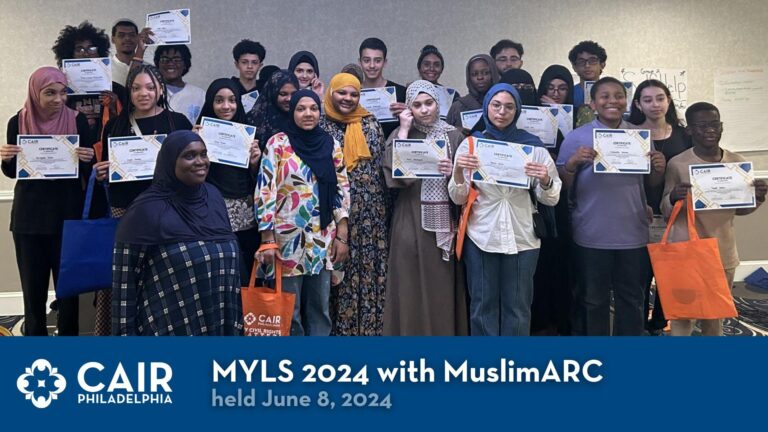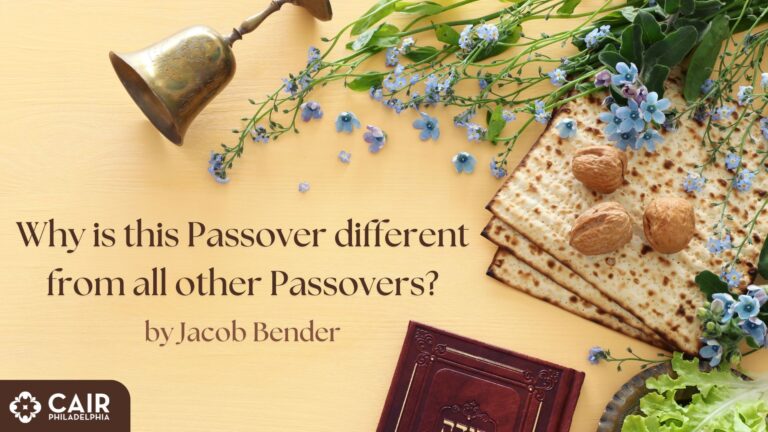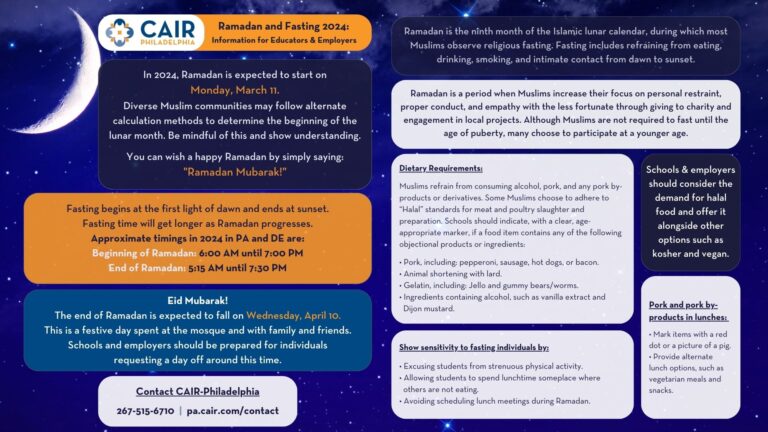by Jacob Bender, CAIR-Philadelphia Executive Director
The right of all American citizens to vote for president and other elected officials has taken us as a nation over 200 years after the founding of the United States to achieve.
The story of American democracy is the story of the expansion of the right to vote to an ever greater part of the adult population. The wealthy white men who wrote the United States Constitution in Philadelphia during the sweltering summer of 1787 did not believe in universal suffrage: working class men and all women were excluded, while African slaves counted as only 3/5 of white people for census purposes. Voting was considered the responsibility, the obligation, and the privilege of men like themselves: white men with property. When Pennsylvania likewise denied free Blacks the right to vote in the late 1830s, a state legislator explained that, “The people of this state are for continuing this commonwealth, what it has always been, a political community of and for white persons.”
Gradually, however, and under the influence of the new immigrant masses flooding into the country to work in the mushrooming industrial factories of America, the right to vote was demanded and won by millions of new Americans. By 1840 more than 90 percent of adult white men possessed the right to vote.
At the conclusion of the American Civil War, the Fifteenth Amendment became law, guaranteeing all citizens the right to vote without recourse to their “race, color, or previous condition of servitude.” It would take another 100-plus years of organizing, protesting, and the passage of the Voting Rights Act of 1965 for that promise to be fulfilled. And American women were finally granted the right to vote, after years of campaigning, only with the passage of the Nineteenth Amendment in 1920.
This history begs us not take the act of voting, for which many people suffered greatly to achieve, for granted. Even today, there are several states that have attempted to limit access of African-Americans and Latinos to the voting booth. (For more information on voter suppression, see The American Prospect and The Leadership Conference on Civil and Human Rights.) The political rights described in the American Constitution and Bill of Rights are not guarantees; they are promises that have only been redeemed through the courage and sacrifices of men and women such as Rosa Parks, Dr. Martin Luther King, Jr., Fanny Lou Hammer, Medgar Evers, and John Lewis. As the old Black spiritual, resurrected during the Civil Rights Movement, says: “Freedom is a Constant Struggle.”
A Means, Not an End
In spite of the above, however, there is a strong case to be made that in Islam, voting is not an end in itself, but only a means towards an end: the establishment of a just social order. Voting is one tool that enables those lucky enough to live in democratic societies (however flawed) a peaceful mechanism to utilize in the pursuit of justice, for the pursuit of justice is at the center of Islamic ethics:
“We sent aforetime our messengers with clear Signs and sent down with them the Book and the Balance, that men may stand forth in Justice.” [Quran 57:25].
Indeed, justice is so crucial in Islam, that the Quran places it above the comfort of our familial relations:
“O ye who believe! Stand out firmly for justice, as witnesses to Allah, even as against yourselves, or your parents, or your kin…” [Quran 4:135]
What impedes the quest for justice, however, is hatred, even hatred of those who oppress us. Centuries before Mahatma Gandhi and Dr. Martin Luther King, Jr. developed their theory of non-violent civil disobedience as a tool in the establishment of a just society (when the ballot box was not within reach), the Quran includes these words: “O ye who believe! Stand out firmly for Allah, as witnesses to fair dealing, and let not the hatred of others to you make you swerve to wrong and depart from justice.” [Quran 5:8]
A just society is a society that has found a non-violent mechanism to settle disputes. As noted above, voting in a democratic election is one such mechanism; the Islamic concept of shura (consultation) is another (see IslamReligion.com for more on this subject). And in extreme situations of injustice, civil disobedience is another.
From my reading and study of the above issues, I reach three conclusions:
- Contrary to Islamophobic mythology, Islam is eminently compatible with democracy.
- Consequently, authoritarian regimes, such as those governing many Muslim-majority countries, are profoundly anti-Islamic.
- All those who follow in the Abrahamic traditions of Judaism, Christianity, and Islam, are obligated to vote (and work towards the establishment of a just society), for that is the mandate of the Torah: “Justice, justice, shalt thou pursue.” (Torah, Deuteronomy 16:20)
Further reading:





